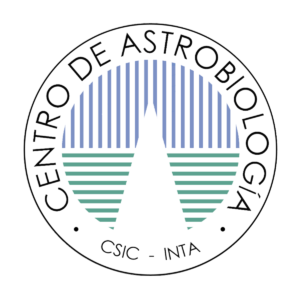The Center for Astrobiology (CAB, CSIC-INTA)) will host a meeting between February 20 and 24, 2023 of the international group for the scientific planning of the “Mars Sample Return Mission”, the MCSG (for its acronym in English, Mars sample return Campaign Science Group).

The National Aeronautics and Space Administration (NASA) and the European Space Agency (ESA) jointly organize the Mars Sample Return (MSR) campaign which includes three distinct phases: 1) Select and collect scientifically return-worthy samples on Mars (this phase has started already with the Perseverance rover and its operations in the Jezero crater on Mars); 2) Collect samples taken on Mars and transport them to Earth and; 3) Receive the samples on Earth safely, avoid their contamination, and make them available to the scientific community.
The analysis of the collection of samples from Mars in 10 years could be used to try to answer a key question: Was there ever life on Mars? The Perseverance rover is the first stage of this suite of interplanetary space missions. Their job is to collect and store a collection of Martian samples with high geological value and astrobiological potential. In a few years from now, a Sample Return Lander will land in Jezero Crater and meet up with Perseverance, who will deliver the samples. Two Ingenuity type helicopters (technology already successfully tested, currently exploring the Jezero crater on Mars) will provide support. The samples will be loaded onto a small rocket that will lift off from the Martian surface to rendezvous with another spacecraft in the planet’s orbit, the Earth Return Orbiter. The orbiter will capture the collection of samples to return to Earth in the early to mid-2030s.
“The Mars sample return mission with carefully selected samples will allow us to access a time capsule from 4 to 3.5 billion years ago, when these rocks formed on the surface of Mars and the planet was habitable,” says María-Paz Zorzano, scientist from the Department of Planetology and Habitability of the CAB and member of the MCSG group, “this period coincides with the moment in which life appeared on Earth.” This collection of samples will be thoroughly analyzed on Earth within 10 years using the most sophisticated instruments and state-of-the-art laboratories. “The two planets were then very similar, with a water cycle, magnetic field, volcanoes and all the necessary elements for life. By analyzing these samples, we will be able to better understand the different evolution of habitable planets”, says Gerhard Kminek, ESA Mars Sample Return Lead Scientist and co-chair of MCSG.
The MCSG group, selected by NASA and ESA from among international experts in the exploration of Mars, will plan the next strategic steps in the scientific implementation of the MSR program during these working days at the CAB, while also taking the opportunity to visit the laboratories and analytical capabilities of the CAB and other departments of the National Institute of Aerospace Technology (INTA).
“It is a real pleasure to meet at CAB since they were early adopters of Astrobiology – and bringing the first samples from another planet is Astrobiology in action,” says Michael Meyer, NASA’s Lead Scientist for the Mars Sample Return Program, co-chair of MCSG (and formally the Lead Scientist for Astrobiology).













